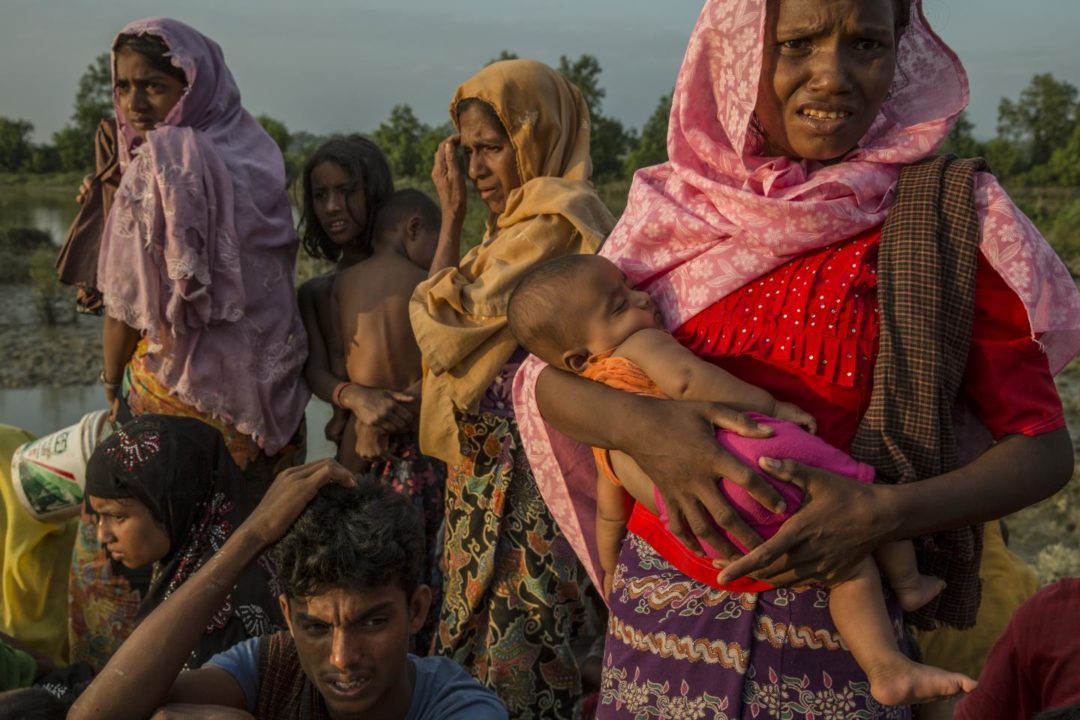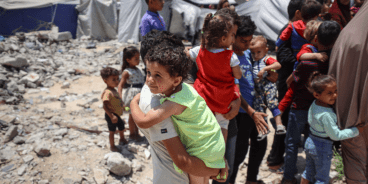

Global Centre for the Responsibility to Protect Submission to the Special Rapporteur on the Situation of Human Rights in Myanmar on the International Community’s Treatment of Those Fleeing Myanmar
In response to a call for input by the Office of the Special Rapporteur on the Situation of Human Rights in Myanmar, the Global Centre for the Responsibility to Protect (GCR2P) provides its brief analysis on the international community’s response to those fleeing violence and human rights violations in Myanmar, primarily through the lens of mass atrocity risks, atrocity prevention, and the international norm of the Responsibility to Protect (R2P).
Analysis
Since the 1 February 2021 coup in Myanmar, over 1 million people have been internally displaced within the country — and at least 70,000 people have fled the country entirely to seek safe haven away from Myanmar’s military, the Tatmadaw, and the mass atrocity crimes the junta continues to perpetrate. GCR2P is particularly concerned by reports of Myanmar refugees being forced by the governments of neighboring countries to return to Myanmar, which is a concern that UN Human Rights Chief Volker Türk also expressed in an October 2022 statement.
Under international law, the principle of non-refoulement prohibits returning people to a country where they face a real risk of serious harm upon return, including persecution, torture, ill treatment, or other grave violations. That is the crisis facing Myanmar refugees who have fled the country, but still regional governments have forcibly repatriated them. Despite the risk of death, the Thai government has forced thousands of refugees to return to Myanmar. The UN High Commissioner for Refugees says Thai government sources estimate around 17,000 Myanmar refugees have sought safety in Thailand since the coup, but only around 2,000 are currently living in Thailand, according to the Thai-Myanmar Border Command Center. Meanwhile, in October 2022 the Malaysian government deported 150 Myanmar citizens who were seeking asylum in Malaysia. Since April 2022, Malaysian authorities have forced over 2,000 Myanmar nationals to return, significantly escalating the pace of deportations for asylum seekers after mid-August. Neither Thailand nor Malaysia have signed the 1951 Refugee Convention.
Nevertheless, it is important to note at least one story of relative success. Since the coup, thousands of Myanmar refugees have fled over the border into India’s state of Mizoram. Although there were concerns that those refugees would be at risk, local officials in Mizoram have actually provided those people with safe haven.
Forcing refugees from Myanmar to return to the country is not an atrocity crime in and of itself. However, forcing refugees from Myanmar to return to the country does unnecessarily put them in a position where they are much more likely to face mass atrocity crimes — and the countries that are forcing them to return are well aware of those atrocity risks. Upholding R2P includes providing refuge to people fleeing mass atrocity crimes. Likewise, the Responsibility to Protect populations from mass atrocity crimes includes the responsibility to not force populations to return to a place where atrocity crimes are widespread. Therefore, forced repatriation in the case of Myanmar may effectively amount to complicity in atrocity crimes.
Lastly, GCR2P is particularly concerned about reports that Bangladesh’s Armed Police Battalion (APBn) is perpetrating human rights abuses against Rohingya refugees in Cox’s Bazar. Abuses include arbitrary arrests, extortion and harassment, creating an environment characterized by fear and vulnerability among Rohingya in the camps. The APBn’s abuses have likely contributed to the significant number of Rohingya who have risked their lives to leave Cox’s Bazar for countries such as Malaysia. Abuses by the APBn, which took over security of the camps in 2020, are aggravating the situation faced by the Rohingya, many of whom fled the 2017 genocide in Rakhine State.
Recommendations
GCR2P welcomes that the Special Rapporteur has consistently centered much of his analysis on the crisis in Myanmar around atrocity risks and the commission of atrocity crimes. GCR2P encourages the Special Rapporteur to continue focusing on atrocity risks and atrocity crimes, including when it comes to the issue of forced repatriation. Doing so best conveys the severity and urgency of the crisis, which in turn can push international actors to take more effective action.
GCR2P also welcomes that the Special Rapporteur has often invoked the Responsibility to Protect in urging the international community to take more substantial action to respond to the crisis in Myanmar. GCR2P encourages the Special Rapporteur to continue invoking R2P – including in this upcoming report – to push the international community to better respect the principle of non-refoulement.
Related Content


